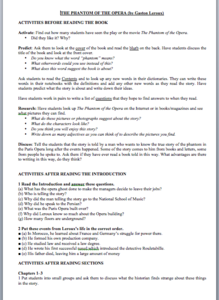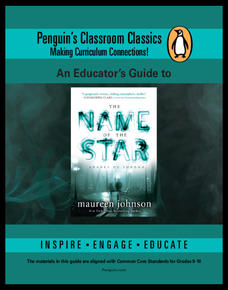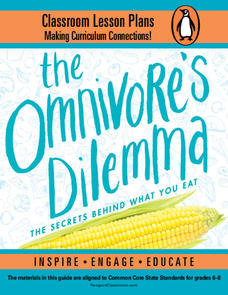Norfork School District
Habits of Mind
Why do artists create? To solve a problem, of course. Young artists work individually and then in groups to create observational, imaginative, and narrative drawings in response to an assignment that requires them to employ all 16 Habits...
EduGAINs
Introduction to the Great Depression—Canadian and World Studies
Ah, the classic business cycle model: recession, depression, recovery, prosperity. And then there was the Great Depression. Groups investigate the economic conditions that led to and social movements of the 1920s that great out of the...
EduGAINs
Data Management
Using a carousel activity, class members gain an understanding of the idea of inferences by using pictures then connecting them to mathematics. Groups discuss their individual problems prior to sharing them with the entire class. The...
Brown University
Following the U.S. Presidential Election
Election years provide the opportunity to evaluate news media as well as the next prospective president. High schoolers read about the same event in several different news sources, varying in type, origin, and political leaning, before...
Virginia Department of Education
The Cycles of Nature
Encourage peer collaboration and assist with the creation of visual aids to identify carbon, water, and nitrogen cycles as your class learns more about nature. They discuss relative information, create a visual aid depicting the chosen...
EngageNY
Using Expected Values to Compare Strategies
Discover how mathematics can be useful in comparing strategies. Scholars develop probability distributions for situations and calculate expected value. They use their results to identify the best strategy for the situation.
University of Northern Iowa
Clothing
As part of an investigation of the folk traditions of their area, class members research the articles of clothing worn at earlier times, the fibers and materials, and the machinery used to produce these items. In addition, class members...
Discovery Education
Make it all Better!
Discover how innovations can help your school and community. In the three-part STEM lesson, scholars learn the meaning of innovation and brainstorm innovations in their schools. They identify issues in their communities and think of...
NPR
This Isn't Right: A History of Women in Industry
Women were in the workplace long before Rosie the Riveter pushed up her sleeve. Learn about the working options available to women during the Industrial Revolution, the Progressive Era, and the Great Depression with a lesson that prompts...
Advocates for Human Rights
Human Rights Defined
Class members continue their investigation of the factors that influence migration with a lesson on human rights. As they examine the Universal Declaration of Human Rights and selected US Constitutional Amendments, learners compare the...
Carolina K-12
Propaganda, Spin and Soundbite Politics
It's all about the spin! In an introduction to propaganda techniques and soundbite politics, scholars first learn about common propaganda techniques before seeing them in action in the context of the 2016 election cycle. Activities...
Busy Teacher
The Phantom of the Opera
It's no masquerade! If Gaston Leroux's The Phantom of the Opera is part of your curriculum, check out this three-page packet loaded with suggestions for before, during, and after reading activities.
US Institute of Peace
Perspectives on Peace
Is peace simply the absence of war, or is there more to the story? Young social scientists define peace in the second installment of a 15-part series. Groups work together to explore cultural concepts of peace and the peacemaking process...
US Institute of Peace
Defining Conflict
Conflict is everywhere—but is it avoidable? The first activity in a series of 15 peacebuilding lessons examines the nature of conflict at home, school, and across the world. Learners develop a definition of conflict through group work...
ELT-Connect
Happy Valentine's Day
Shelves filled with heart-shaped boxes of chocolates. Bouquets of red roses. Racks of romantic cards. Stores are preparing for Valentine's Day. Has the holiday become too commercialized? That is the question asked by a lesson designed...
Social Media Toolbox
Social Media Usage
Is there a difference in the way organizations present news via social media and in print? The third in a series of 16 lessons from The Social Media Toolbox explores news outlets and their delivery methods. Groups follow a story for a...
Social Media Toolbox
Reporting with Social Media
What does it take to create news stories that are both informative and objective? Aspiring journalists walk the line between engagement and activism with lesson 15 of a 16-part series titled The Social Media Toolbox. Grouped pupils...
National History Day
Challenging the Status Quo: Women in the World War I Military
Why are some so resistant to change? The status quo is often to blame for a lack of forward movement in society. Following the events of World War I, women in America suddenly had a voice—and were going to use it. Scholars use the second...
Described and Captioned Media Program
Malcolm X: Make It Plain, Part I
Malcolm X was a complicated man that few in white America understood. After sharing what they know or think they know about this civil rights leader, about nationalism and Black Nationalism, class members view a two-part documentary...
Described and Captioned Media Program
Malcolm X: Make It Plain, Part II
Track the transformation of Malcolm Little into Malcolm X and then into El Jajj Malik El-Shabazz with the second part of Make it Plain, a documentary on the famous civil rights activist. Viewers consider not only how events shaped and...
Tidewater Community College
Assignment: The “Big Mac” Index
Young economists learn about the method of predicting changes in the exchange rate with Big Macs in an instructional video. After an understanding the index, learners write a post on a discussion board and respond to class members' posts...
Equality and Human Rights Commission
Influencing Attitudes
Does propaganda—like that used during the first World War—exist today? The 11th lesson plan in a series of 12 highlights the role of media when it comes to influencing attitudes. Scholars learn about sensational headlines,...
Penguin Books
An Educator's Guide to The Name of the Star by Maureen Johnson
Jack the Ripper terrorized London in the late 1800s. An educator's guide for the novel The Name of the Star places the historical figure in a modern context. Readers complete a pre-reading activity before answering a series of discussion...
Penguin Books
The Omnivore’s Dilemma, Young Readers Edition
As the saying goes, you are what you eat. A useful set of lesson plans encourage young readers to take a second look at their eating habits. Pre- and post-reading questions bring in reflective writing and discussion while extension...
Other popular searches
- Magazines and Journals
- News Magazines
- Creating a Magazine
- Magazine Articles
- Learning About Magazines
- Express Magazine
- Persuasion and Magazines
- Magazine Advertisements
- Animal Magazines
- Time for Kids Magazine
- Jobs Magazines
- Classroom Magazine

























